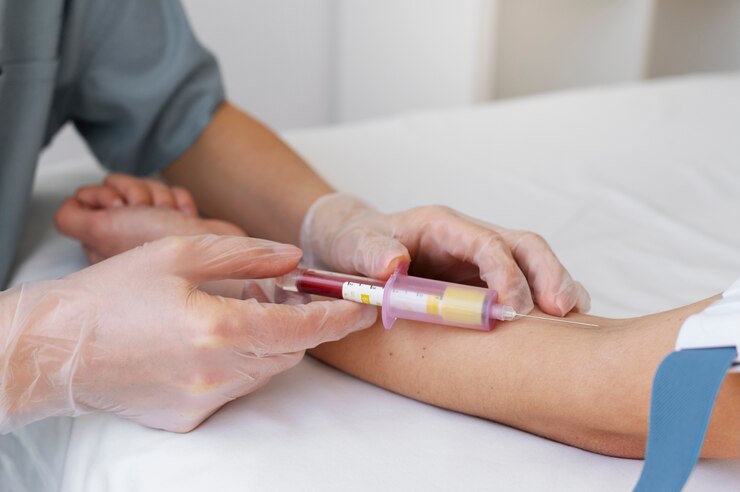MCV Blood Test Purpose, Procedures and Test Results and More

Table of Contents
Understanding the MCV Blood Test
When you visit your doctor for a routine checkup, you may be recommended to undergo several blood tests. One such important test is the MCV blood test, which stands for Mean Corpuscular Volume. This test measures the average size of your red blood cells and can provide valuable information regarding your overall health.
What is the MCV Blood Test?
The MCV blood test is a part of the complete blood count (CBC) test. It helps in measuring the average size of your red blood cells. Red blood cells are crucial as they carry oxygen from your lungs to all parts of your body and return carbon dioxide to your lungs for exhalation.
Why is the MCV Blood Test Important?
The MCV is an essential metric as it helps doctors diagnose various health conditions. Abnormal MCV levels can indicate the presence of several underlying health issues, such as anemia, vitamin deficiencies, and chronic diseases.
How is the MCV Blood Test Conducted?
The MCV blood test is straightforward and is conducted as part of a routine CBC panel. A healthcare provider will draw a small sample of blood from a vein in your arm using a needle.
- Preparation: You might have to fast, depending on what other tests are being conducted along with the MCV test.
- Blood Draw: The medical professional will clean the area, insert a needle to draw blood, and then apply a bandage once enough blood is collected.
Interpreting MCV Blood Test Results
After your blood sample is analyzed, your doctor will review the results. The MCV value is measured in femtoliters (fL), and the normal range is typically between 80-100 fL.
- Low MCV (Microcytic): MCV less than 80 fL may indicate microcytic anemia.
- Normal MCV (Normocytic): MCV between 80-100 fL typically indicates no size abnormality.
- High MCV (Macrocytic): MCV greater than 100 fL may indicate macrocytic anemia.
Common Conditions Detected by the MCV Blood Test
Anemia
One of the most common reasons for an MCV blood test is to check for anemia. Anemia can occur due to a deficiency of iron, vitamin B12, or folate. It can also be related to chronic diseases and other underlying conditions.
Vitamin Deficiencies
The MCV blood test can indicate deficiencies in essential vitamins like B12 and folate, which are necessary for red blood cell production.
Liver Diseases
Abnormal MCV levels can also indicate liver disease. The liver plays a crucial role in protein synthesis and red blood cell production and destruction, affecting the MCV.
Factors Affecting MCV Blood Test Results
Several factors can impact the results of an MCV blood test. These include:
- Lifestyle: Diet and alcohol consumption can affect MCV levels.
- Medications: Certain medications can alter red blood cell size.
- Chronic Illnesses: Ongoing health conditions like kidney disease can influence MCV values.
How to Prepare for an MCV Blood Test
Before undergoing an MCV blood test, make sure to:
- Follow Fasting Instructions: Follow any specific instructions your doctor gives you regarding fasting.
- Medication Disclosure: Inform your healthcare provider about any medications or supplements you are taking.
- Hydration: Stay well-hydrated but avoid excessive drinking of alcohol, which can skew results.
Conclusion: Ensuring Accurate MCV Blood Test Results
In conclusion, the MCV blood test is a valuable diagnostic tool that can help identify several underlying health conditions. Understanding your MCV level can guide your doctor in diagnosing potential problems and recommending appropriate treatments. Don’t hesitate to discuss your test results with your healthcare provider to gain a clear understanding of your health.
Make sure to keep up with regular checkups and follow medical advice to maintain your health. If you have any questions or concerns about your MCV blood test, consult your doctor for more personalized information.
Call to Action:
If you found this guide helpful, please share it with your friends and family. For more information on diagnostic tests and maintaining your health, visit our website.
Disclaimer:
This blog post is for informational purposes only and should not be considered medical advice. Always consult with a healthcare professional for medical diagnosis and treatment.
Also read: Top 5 Anti Aging Foods for Youthful Skin